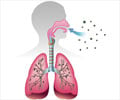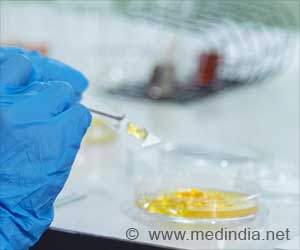Fungal infections, for many of us, though very annoying, are just a harmless fact of life. But this harmless fact turns fatal for many sick people who have weakened immune systems and cannot put up a strong defense against attacks launched against their blood vessels and internal organs.
Doctors maintain that fungal infections though not harmful killers, can create complications in many modern medical therapies rendering them ineffective for treatment of several serious diseases. Various naturally occurring fungi in our body, occasionally cause infections in places like toenails, the mouth & the vagina. Fungi can however travel into the body in patients with weakened immune systems and cause a disease called candidiasis.Patients who are most vulnerable to candidiasis are those who are HIV-positive, those who have received organ transplants or chemotherapy and those who have catheters inserted. Doctors say that the disease can kill 30 to 40 per cent of those infected.
Until now, the "hidden plague" of fungal infections in hospitals has been combated by two main drugs - Amphotericin B and fluconazole. While the former drug, which has been around for nearly 45years works well but with serious side effects, the latter is safer, but does not work against all strains of bacteria. A new study has however discovered a new drug that works as well as the earlier ones but without the burden of bad side effects.
Dr. John Perfect, an associate professor of medicine at Duke University and his colleagues carried out a study to test the effectiveness of the new drug called caspofungin, which is manufactured by the pharma major Merck. The study, which was funded by Merck involved testing both the new drug and old ones in nearly 250 patients from around the world.
The study concluded that the new drug, caspofungin was as effective as Amphotericin B without as many side effects. However one of the main disadvantages of the drug, besides being new and therefore costly, is that it needs to be injected intravenously. This aspect makes it difficult to use the drug outside a hospital set-up.
The drug, which has not yet been approved for use in candidiasis patients, due to its high cost will be reserved for the sickest kinds of patients who are in the hospital and for one reason or another have not responded to fluconazole.
Advertisement






